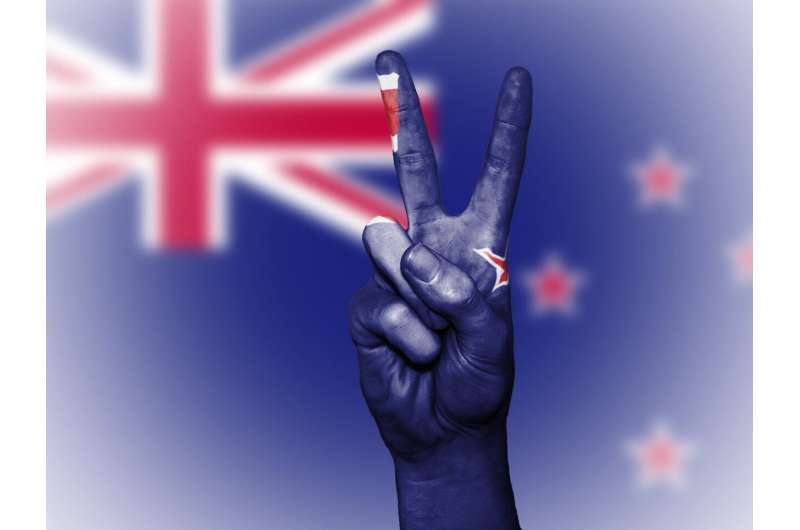Credit: CC0 Public Domain
The first wide-ranging survey of New Zealand military personnel shows many suffer symptoms of post-traumatic stress (PTS) though greater length of service, psychological flexibility (resilience) and quality sleep may be protective factors.
Conducted by University of Otago researchers, the survey of 1,817 people currently serving and retired military personnel in New Zealand, reveals one in three had symptoms of PTS and one in 10 would likely be diagnosed with post-traumatic stress disorder.
Lead researcher David McBride, associate professor in occupational and environmental medicine, says the findings are similar to an earlier study which found evidence of PTS among 10 percent of New Zealand Vietnam war veterans.
"These results suggest that the prevalence of clinically significant PTS is higher among military personnel compared with the general population of New Zealand, where rates are estimated to be 3 percent.
"Our results are a timely reminder as we celebrate ANZAC Day that support to deal with PTS is needed for a large number of New Zealanders who are serving, or have served in the military."
The researchers identified those suffering symptoms of PTS were more likely to be older, male, Māori and have experience of trauma.
Those with fewer signs of post-traumatic stress had a greater length of service, psychological flexibility (resilience) and better quality sleep, suggesting these factors could be targeted to reduce PTS among military personnel in New Zealand.
"What we were trying to do is to identify veterans with distress, particularly post-traumatic stress injury because when they go to their health providers, they may not identify as a veteran," Associate Professor McBride explains.
"Not all are classified as veterans under the Veterans Support Act, because they have not deployed on operational service, but we used the overseas definition of 'having served in the military' for our survey and help is available."
The findings suggest that health providers could ask simple questions, about quality of sleep for example, which could assist in caring for and improving the health of many of these military personnel.
"There is preliminary evidence to indicate that early intervention among military personnel experiencing sleep disturbance may help to reduce PTS symptoms," he says.
"Resilience, or a lack of psychological inflexibility, may be a route to improving things; talking therapies, including acceptance and commitment therapy may work, although we need to know more.
"A lot of it is about values, beliefs and attitudes of many veterans because of the military culture, think that asking for help is a sign of weakness, which it is not."
Associate Professor McBride says the researchers expected social support to be a protective factor, but it wasn't. "Veteran support is complex," he explains.
Researchers were unable to explain why Māori had higher rates of PTS (78 percent of Māori showed at least some symptoms) while results also showed military personnel did not have to be deployed to a war zone to be exposed to psychological trauma.
Despite older age being associated with increased odds of PTS, a greater number of service years was associated with reduced odds of PTS. This may reflect a resilience that develops over time among long-serving personnel, or may be because those with PTS leave service earlier.
While New Zealand Vietnam War veterans and other specific groups have been surveyed previously, this new research is believed to be the first focusing on the prevalence of PTS among all New Zealand military personnel.
The New Zealand Defence Force helped with the survey and most of the responses came from veterans who had been deployed. A good number of non-deployed veterans also participated however, Associate Professor McBride says there are many veterans in the community who they do not know about. And, those with higher PTS may have been more likely to participate. However, the prevalence rates of PTS reported in this research are in line with international studies of military personnel.
Provided by University of Otago






















